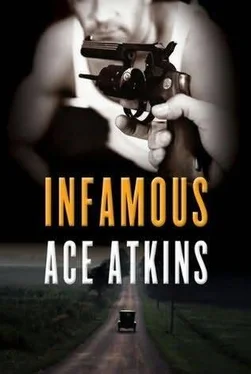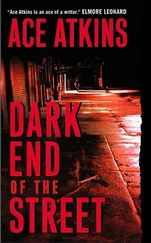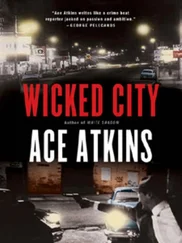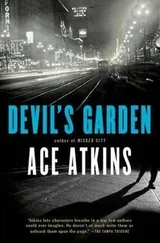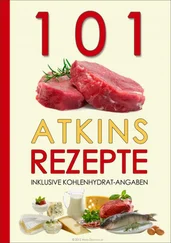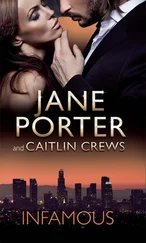“I’m done,” Harvey said, swilling the drink. “I want my coin, and I’m throwing in the towel.”
“There’s a guy who can cut your face to look like anyone you please. He can burn your fingerprints off, too. How’s the G going to find a man then? You’d be someone else, and no file will say you ain’t.”
“A man keeps his word,” Harvey said. “I just want what’s mine. What I earned. What’s wrong with that?”
“I don’t like to do a whore more ’an once,” Karpis said. “You do them more ’an once and they start thinking that you like ’em and they’ll want some kind of tip.”
“You walk into the bank, put down the cash, and get your farm back,” Harvey said. “You take that foreclosure notice and tell them to stick it far and high up their ass.”
“Ain’t a girl a fine thing?” Karpis said, stumbling up onto his feet, drink sloshing in his hand. “I think I’ll have a second helping.”
“People today. Greed. Pussy-mad.”
THE NARROW RUTTED ROAD SWOOPED SOUTH SIXTEEN MILES from Decatur, the seat of Wise County, Texas, where Jones and Detective Ed Weatherford had just met with the vice president of the First National Bank. The men’s badges had opened up the file of Mr. Boss Shannon, a respected cotton farmer who always kept about five hundred dollars in his savings account and was known to pay his mortgage on time. But Jones had also asked where they might find the biggest know-it-all in Wise County, and the vice president laughed and gave the name of their former examiner. And that examiner was called, and, after some telephone back and forth, the vice president raised eyes over half-glasses and told the men the examiner never saw how Boss ever made a living on the few acres of cotton he raised.
Handshakes were made, and they were off in the Plymouth with official papers of the bank, Jones working for First National and Weatherford the new examiner. They’d tell Boss he needed to sign a new note, since that fella in Arkansas had barely paid off the interest.
“How’s them charts and graphs and such working out, Mr. Jones?”
“They’re coming.”
“But they all point to where we headed.”
“United Airlines has a twin-engine come out of Fort Worth that flies that route regular.”
“But didn’t fly during the storm.”
“No, sir.”
“You brung that map?”
“I brung it.”
“If we get into a nest of desperadoes,” Weatherford said. “Just want you to know, I’m a fair shot.”
Jones replied with a grunt, hot afternoon wind passing through the open car window, as a telephone pole painted white appeared just as the bank examiner said it would. Jones slowed and turned onto an even more rutted, narrow path, the kind built for horse and carriage but not a Plymouth. A dwelling came into view-a slatted-together, tin-roofed shotgun job. No paint, and a stone fireplace barely finding purchase on a back kitchen. As he braked the automobile, scattering a mess of guineas up onto the roof and into a dead mesquite, a smallish man-more like a boy-walked out onto the uneven porch wearing nothing but a pair of threadbare overalls and smoking a long cigar like Jones had seen in the mouths of city politicians.
A barefoot girl holding a child joined him, and they stared with vacant eyes as Jones got out on the running board and offered them a smile. “You Mr. Shannon?”
“I’m Armon. You lookin’ for Boss?”
“We are.”
“Back the way you come,” he said. “Down another mile. Boss is my daddy.”
The baby wore a sagging diaper and groped for the girl’s fattened bosom, crying for some tit, till the boy told them both to git on inside, the door slamming with a hard thwack behind them.
“This part of his property?” Jones asked. Weatherford crawled out of the car, grinning with his big teeth and removing his sweaty hat from his head and fanning his face. He recognized the layout of the shack, too.
“Yes, sir.”
“We come from First National,” Weatherford said. “Need a signature on a note he signed.”
The boy looked at the two men-in cowboy hats, suits, and boots-and studied their faces in the high afternoon sun, the cicadas going wild in the distant parched trees. Guineas, growing nervous, in a low cackle. His face was a puzzle of confusion, but he didn’t say anything, just dropped his left hand inside his overalls and found his pecker to scratch.
“Don’t suppose you could spare some water?” Jones asked.
“Yes, sir,” Armon Shannon said. “We gots some water. Out back. Supposin’ you need a cup?”
“That’d help,” Jones said, watching the boy hop from his perch barefoot, waking an old, sleeping hound-a Walker, with long, flea-bitten ears-that loped up and around and down under the shade of the porch.
“How’s the corn?” Weatherford asked, giving Jones a sly grin as they walked side by side. Weatherford’s shadow had absorbed into his.
“Shoot,” Armon said. “Dying or dead.”
“You had much rain?”
“A week back,” Armon said. “But ’tweren’t good enough. Didn’t do nothing but bring on the worms. Them worms are greedy as hell, eat down half an ear in a night. You think they’d leave a few kernels.”
The boy stopped suddenly and kicked at the dusty, well-worn ground that scratching chickens had made smooth. He pointed to a boarded well with a pulley and old tin bucket. “You can use that ole dipper there.”
“Just you and your wife?” Weatherford asked, stepping up as Jones dropped the bucket down deep into the well, hearing it hit bottom with a solid splash.
“Her people live a mile away. My people, too. When you got the kinfolk so close, a man don’t want for nothin’.”
“And you got ’nother in the oven?” Weatherford asked.
“Wore a goatskin, but the dang thing musta sprung a leak.”
“You know you can get ’em made of rubber these days.”
“I know,” Armon said. “I seen ’em at the drugstore.”
Jones pulled the bucket back to daylight and used that old dipper to find a drink just a mite cooler than the air and tasting so deeply of rust and minerals that it soured his face. The action wasn’t lost on Weatherford, who foxed those eyebrows and wandered over to a pen with a couple fat sows and piglets wallowing in caked mud and slop, chickens scrambling and clucking at his feet, waiting for them to drop a crumb. Too dumb to find some shade.
“Radio said it might break a hunnard today.”
“That so?” Jones said, placing the dipper back on a twisted nail and wiping the rust onto his pressed pant leg.
“Our water ain’t cold branch, but glad we got it,” Armon said. “Say, would you boys like to share a watermelon? She’s a mite puny but just sure would wet the whistle.”
The men sat along the open porch, Armon Shannon cutting into the small, round fruit with a pocketknife and handing over generous slices-for the size-to the two men. Jones pulled a handkerchief out of his coat pocket, careful not to expose the thumb buster, and gripped the rind.
“You got some salt?” Weatherford asked, before sinking his big teeth into a slice, the red juice running down his chin onto his silk tie. He took aim at the old hound, who’d come back out from under the porch, and spat seeds at the dog’s head.
Armon skedaddled on in, fetching some salt. Door thwacking closed behind him.
“How’s the comparison?” Weatherford asked.
“What do you think?” Jones said, tasting the watermelon, and making out the tin of a barn roof reflecting a mile or so to the southwest, thinking he wanted to meet Boss Shannon before the sun went down.
Armon came back with a saltshaker and passed it to Weatherford.
The baby followed, naked as Eve, stumbling for her daddy’s leg and tugging for a slice of watermelon, pointing to her mouth like a jaybird. Shannon shook his head and cut off a miserly slice, placing it into the child’s tiny hands, the father opening the screen door for the child to wander back through. He finished off the watermelon and said he was headed ’round back to throw the rind to the hogs. As he turned the corner, Jones followed the child into the shack, hotter than the porch, catalog wallpaper of red flowers coming unglued from the walls. He heard the small feet scatter and then stop, and a rusted, tired squeak.
Читать дальше
